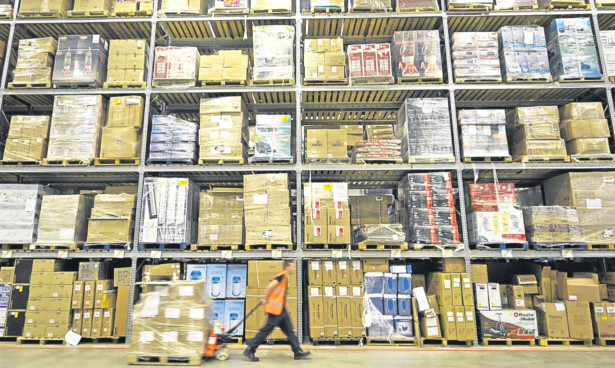
When Amazon started up in 1994, it was with a few blokes in a garage packaging books and sticking them in the post.
Fast-forward 19 years and it’s the world’s leading on-line shopping site. It boasts nearly 90,000 employees and has more than 164 million “active” customers people who have bought from the site in the last 12 months.
The firm has separate websites in the US, Canada, the UK, Germany, France, Italy, Spain, Brazil, Japan, and China and is expected to launch many more.
Worldwide revenue last year was $61.09 billion.
As founder Jeff Bezos said: “Amazon.com strives to be the e-commerce destination where consumers can find anything they want to buy.”
And he’s certainly been true to his word. The site offers millions of items, from music, films and video games to DIY tools, gardening equipment and clothes.
But it’s also riven by controversy. As well as anger over what it pays to the UK Exchequer, authorities in China, Germany, France, Japan and Luxembourg are investigating its tax affairs.
And while Amazon argues it’s working within the law in the UK which it is it’s risking a consumer backlash.
Coffee chain Starbucks saw UK profits dip after it was revealed how little corporation tax it pays.
And there are calls for a boycott of Amazon. Campaigner Rob Harrison argues the firm is effectively “stripping away our public services to make our products cheaper”.
He said: “If Amazon can’t be persuaded to pay a fair rate of tax on its profits then this is where we’ve got to.
“We think they are a good target for a global boycott. The time is right to focus on a company whose business model appears to be based on not paying its tax.
“Action of this kind will be food for thought for the many other brands whose tax minimisation strategies have strayed into plainly unreasonable territory.”
It could be that Amazon, like Starbucks, “offers” to pay more tax to keep public opinion onside. It seems unlikely. Its products are so diverse and their on-line presence so pervasive that they’re hard to avoid.
But, as any businessman knows, price is king. And there are few places as cheap as Amazon.
Amazon now produces its own electronic goods most famously the Kindle e-reader, which sparked a revolution in how the public read and the Kindle Fire tablet computer.
It started with books. At the start of the internet revolution, Bezos recognised things were changing.
Believing the world was about to experience a “dotcom goldrush” he was determined not to miss out. It was a desire he refers to as his “regret minimisation framework”. As Bezos says: “I know the one thing I might regret is not trying.”
The then 31-year-old quit his well-paid job at a New York hedge fund and moved to Seattle. He created a list of 20 products he reckoned it’d be easy to flog on-line. Then whittled it down to just one books. They were popular world-wide, profit margins were good, there were loads to sell and they were easy to post.
Amazon launched its site a year later in July, 1995. Within months it was selling to almost 50 countries with sales of more than £15,000 a week.
It floated on the Stock Exchange in 1997 for $18 a share and a year later launched its dedicated British site.
Its rapid expansion from books to other goods saw it survive the “dotcom crash” in the early 2000s it had become “to big to fail”.
But the company has never posted huge profits. In fact, its first profits came in 2003 just over £23 million on sales of £3.5 billion.
Bezos’ focus on relentless growth and desire to grow his customer base means it appears Amazon makes relatively little money on sales. The Kindle was basically sold at cost price.
And his obsession with providing goods at rock-bottom prices has caused problems there are claims from around the world that workers endure miserable conditions.
Its staff don’t work in warehouses, but rather Orwellian sounding “fulfillment centres”.
There were protests outside its Dunfermline plant earlier this year over low wages and working conditions. Staff get £6.20 an hour, just 1p above minimum pay. There are also claims by the union GMB of bullying and harassment.
In response, Amazon said they give staff a “safe and positive working environment”.
Workers have also complained about “sweatshop conditions”. At a warehouse in Pennsylvania in the US, it was claimed ambulances were regularly called to treat workers who passed out.
Amazon’s sales strategy is an ultra-long term model that’s unusual in business. But then, Bezos is an unusual man. He’s ploughed millions into Blue Origin, a company he founded in 2000, and kept secret until 2006. Its aim is the colonisation of space.
Who knows, one day we’ll all shop at Amazon.Mars

Enjoy the convenience of having The Sunday Post delivered as a digital ePaper straight to your smartphone, tablet or computer.
Subscribe for only £5.49 a month and enjoy all the benefits of the printed paper as a digital replica.
Subscribe